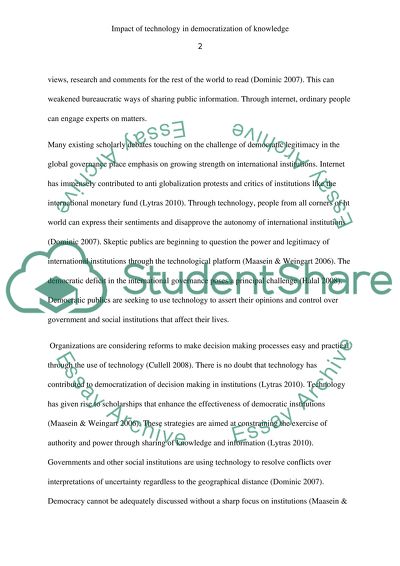Cite this document
(“Impact of Technology In Democratization of Knowledge Essay”, n.d.)
Impact of Technology In Democratization of Knowledge Essay. Retrieved from https://studentshare.org/sociology/1462253-impact-of-technology-in-democratization-of-knowledge
Impact of Technology In Democratization of Knowledge Essay. Retrieved from https://studentshare.org/sociology/1462253-impact-of-technology-in-democratization-of-knowledge
(Impact of Technology In Democratization of Knowledge Essay)
Impact of Technology In Democratization of Knowledge Essay. https://studentshare.org/sociology/1462253-impact-of-technology-in-democratization-of-knowledge.
Impact of Technology In Democratization of Knowledge Essay. https://studentshare.org/sociology/1462253-impact-of-technology-in-democratization-of-knowledge.
“Impact of Technology In Democratization of Knowledge Essay”, n.d. https://studentshare.org/sociology/1462253-impact-of-technology-in-democratization-of-knowledge.


